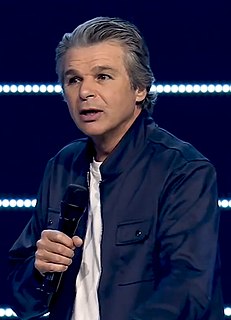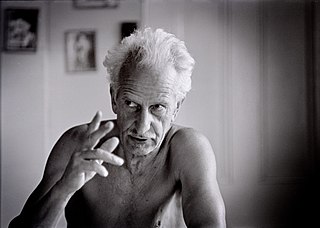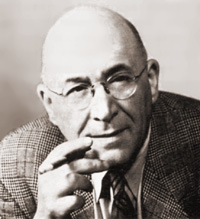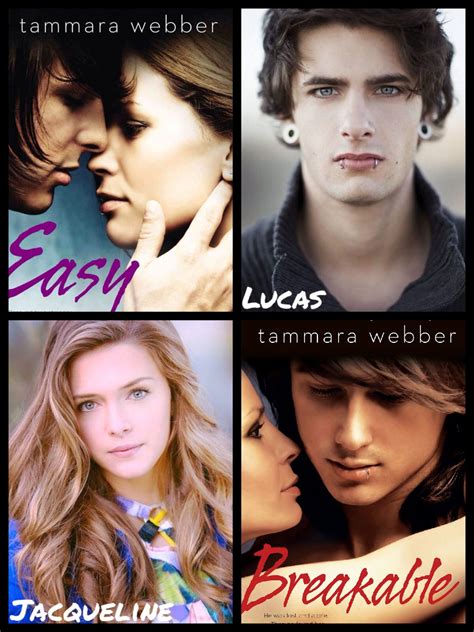A Quote by Antony Hegarty
You need to release yourself of any expectation of what that material should be. Just start letting it be what it's naturally evolving into, even if it means just pulling words out of the dictionary and laying them one after another. Words are everywhere.
Related Quotes
We need to send our words out in the direction we want them to go. In other words, we need to start talking victory when we’re staring at defeat. We need to start talking healing when we’re feeling sick. We need to start blessing and prosperity when we don’t have anything. We need to speak about marching when we feel like quitting.
Some professional writers write everyday no matter what and perhaps that's the way it should be done, but it's not the way I do it. If I'm not pregnant with words and I'm not in labor with them, I don't even try to bring them forth because they won't be any good anyway. Once I'm ready to deliver, it's like being pregnant. I've got to find a typewriter or a piece of paper. The only words that have ever had any possible value to others seem to have been those words that just had to come out.
The rewriting is always crucial to what I do; whenever I do a scene, I always tell myself that this isn't final and that I can do it again, better. The pacing is probably from experience. I've always liked gradual disclosure. I keep thinking of my rubber-band theory. You have a rubber band that you keep pulling and pulling and pulling, and just at the moment of snapping you release it and start another chapter and start pulling again.
Most songwriting like poetry takes a careful selection of words. Sometimes you're just channeling something and a selection of words come out that you wouldn't normally say, but you come up with an assortment of words that are really special. It just makes sense even if it's normally how you wouldn't express yourself.
Simply, if you're working with good material, then it's right there, and you don't have to try so hard as an actor; you don't have to do so much. Just let the material sit inside you and let it come out. Just say the words. That was the main thing that I learned from doing Aaron Sorkin's work - say the words, and everything else will happen.
Fail, it's not in my dictionary. I've got a good dictionary up there and the words 'fail' and 'failure' have been ruled out for years. I don't know what people are talking about who use that word. All I do know is temporary non-success, even if I've got to wait another 20 years for what I'm after, and I try to put that into people, no matter what their object in life.
One piece of advice can be universally handed out, and it applies equally to speaking, understanding, reading, and writing. If in the course of any of these language activities, you run across words whose meaning or use baffles you, don't by-pass them. Look them up in the dictionary and familiarize yourself with them.
I opened my mouth wide one time to see if the words I was thinking would fall out, but they wouldn’t. If words don’t want to come out, they don’t. I don’t understand when people say things and then they say, I didn’t mean to say that. Words don’t just fall out. You have to push them out. And sometimes, you can’t push them out, even if you want to.
When I'm performing, the crowd just disappears, it's like everyone merges - one big person. You just say the words and people will say the words back to you. And it's just so rehearsed. I have a lot of songs I couldn't forget the words if I tried. So you get in there, you lose yourself and it's all good.
I often recall these words when I am writing, and I think to myself, “It’s true. There aren’t any new words. Our job is to give new meanings and special overtones to absolutely ordinary words.” I find the thought reassuring. It means that vast, unknown stretches still lie before us, fertile territories just waiting for us to cultivate them.
Just by being aware, thoughts start disappearing. There is no need to fight. Your awareness is enough to destroy them. And when the mind is empty, the temple is ready. And inside the temple the only god worth placing is silence. So those three words you have to remember: relaxation, thoughtlessness, silence. And if these three words are no more words to you but become experiences, your life will be transformed.
I love the sound of words, the feel of them, the flow of them. I love the challenge of finding just that perfect combination of words to describe a curl of the lip, a tilt of the chin, a change in the atmosphere. Done well, novel-writing can combine lyricism with practicality in a way that makes one think of grand tapestries, both functional and beautiful. Fifty years from now, I imagine I’ll still be questing after just that right combination of words.
Actually if a writer needs a dictionary he should not write. He should have read the dictionary at least three times from beginning to end and then have loaned it to someone who needs it. There are only certain words which are valid and similes (bring me my dictionary) are like defective ammunition (the lowest thing I can think of at this time).




































